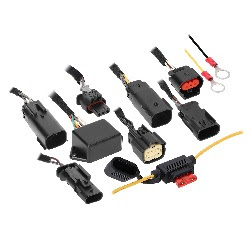Celebrating 30 Years of the Toyota Production System Support Center

How does decades of assembling some of the world’s best vehicles help improve small and mid-sized manufacturers, food banks, health care providers and government agencies?
For more than 30 years, Toyota Production System Support Center (TSSC), a not-for-profit corporation, has shared its know-how with more than 500 partners. Its teachings are based on the Toyota Production System (TPS), an organizational manufacturing culture and mindset that engages people to continuously make improvements and create solutions.
In celebration of its 30th anniversary, TSSC today joined with its partners and experts to reflect on its history and look toward its future.
Utilizing TPS, TSSC operates on the philosophy that small improvements can make a big difference, not only inside Toyota but with outside organizations as well. This approach has seen transformative results in unexpected places for an automaker, including hospitals, food banks, health care providers and local businesses.
By sharing its knowledge to find better ways of doing their day-to day work, achieve higher productivity, maximize resources, and improve quality and safety, TSSC helps partners stay competitive, preserve jobs and support more people and communities in need.
“Sharing ideas to find better ways of doing things demonstrates that small improvements can make a big difference while enriching peoples’ lives and making communities stronger,” said James Bonini, president of TSSC. “We’ve learned that sharing our know-how gained from years of automaking experience can help others, and TSSC has been fortunate to help a variety of partners make a positive impact in the communities where they operate.”
Established 1992, TSSC has 15 full-time employees who travel throughout North America and execute up to 50 projects annually. Partner companies and organizations are for- and non-profits, and through strong collaboration, solutions are identified, tested and implemented to drive performance.
Examples of TSSC Projects and Results
St. Bernard Project
Six years after Hurricane Katrina struck New Orleans, thousands of people still had not been able to return to their homes. St. Bernard Project (SBP), a non-profit home rebuilding group, could not keep up with demand and began collaborating with TSSC to reduce customer wait time in the rebuilding of houses while increasing quality, productivity and safety.
By implementing various TPS techniques, SBP was able to accomplish the following:
- The time it took to rebuild a home dropped from an average of 116 days to 60, a 48 percent improvement
- Amount of houses being rebuilt per month jumped from 8.6 to 12.8
- Improved quality, safety and processes, including the use of visual tools to track schedules and inventory
“Initially Toyota showed us how to build faster to get disaster victims home sooner,” said Zack Rosenburg, founder and CEO of SBP. “Now we have taken kaizen – this notion of getting better every day – and put tools and solutions in place to mitigate the impact of a disaster before it happens and in the immediate aftermath. This work is critical so that disaster victims can see a quicker path to recovery.”
Harbor-UCLA Medical Center
Helping the underserved population in the Southwestern Los Angeles County region for nearly 80 years, Harbor-UCLA Medical Center’s Eye Clinic had a backlog of patients who required care, however, their surgical waitlist was hundreds of patients long. In several instances, patients were going blind while waiting months to be seen by doctors.
By applying TPS concepts, the Eye Clinic was able to accomplish the following:
- The time from check-in to discharge for patients was cut in half
- Doubled the number of patients being treated
- Eliminated surgical waitlist
“Over a two-year period, we took a surgical backlog that was hundreds of patients long, and we eliminated it,” said Pradeep Prasad, MD, chief of ophthalmology, Harbor-UCLA Medical Center. “This is our hospital, and Toyota came in to teach us how we can identify ways to do better. I never would have thought that implementing TPS would help save lives, or keep people from going blind, but it has.”
For more information about TSSC’s work, or to inquire about its services, please visit TSSC.com.
RELATED MEDIA
About Toyota
Toyota (NYSE:TM) has been a part of the cultural fabric in North America for more than 65 years, and is committed to advancing sustainable, next-generation mobility through our Toyota and Lexus brands, plus our more than 1,800 dealerships.
Toyota directly employs more than 48,000 people in North America who have contributed to the design, engineering, and assembly of nearly 45 million cars and trucks at our 13 manufacturing plants. By 2025, Toyota’s 14th plant in North Carolina will begin to manufacture automotive batteries for electrified vehicles. With more electrified vehicles on the road than any other automaker, Toyota currently offers 22 electrified options.
Through the Start Your Impossible campaign, Toyota highlights the way it partners with community, civic, academic and governmental organizations to address our society’s most pressing mobility challenges. We believe that when people are free to move, anything is possible. For more information about Toyota, visit www.ToyotaNewsroom.com.






Great post
Great article showcasing Toyota’s Production System Support Center’s contributions to improving small and mid-sized manufacturers, food banks, health care providers, and government agencies. The collaborative approach to problem-solving and implementing small improvements has led to impressive results and positive impacts on communities.
Eamon
Great DIY Ideas